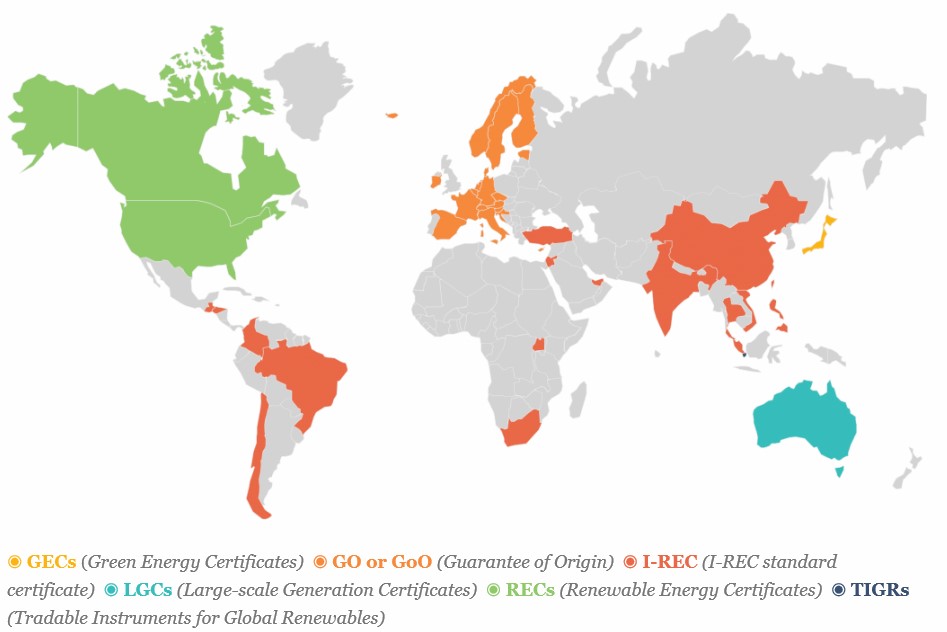A way to reduce your company’s emissions.
Which possibilities are there in the field of green energy?
If a company wants to purchase green electricity, there are three options. On the one hand, it can invest directly in the construction of a plant for the production of renewable energies. On the other hand, it can decide between label products and renewable energy certificates when purchasing electricity.
In the case of label products, external organizations certify the products of an electricity supplier. The requirements are set by independent organizations, which creates transparency. As a company, you buy the electricity as usual from a supplier who then offers a labeled product.
What exactly are renewable energy certificates?
Renewable electricity certificates are transferable guarantees of origin that companies can purchase separately from physical electricity contracts. In procurement practice, companies have three options for pursuing sustainability goals with guarantees of origin.
- Option 1: They choose a provider that delivers electricity and renewable energy certificates from a single source.
- Option 2: They choose an electricity supplier, who buys the renewable energy certificates and then delivers them together with the electricity.
- Option 3: They separate the tender for the electricity supply and the renewable energy certificates.
Depending on the country, there are different renewable energy certificates that can be acquired by companies. The most widely used are the RECs in the US and Canada, the GOs in the EU and the I-RECs in many countries of the global south, including China, India, South Africa and Brazil.
Source: 3Degrees Inc.
Really green?
Renewable energy certificates are rather critical from an ecological point of view. In most cases, they do not actually reduce global greenhouse gas emissions. However, in many cases, they are the most viable and cheapest way to reduce corporate greenhouse gas emissions.
The reason for the low impact on the environment is the low market prices of renewable energy certificates. This is on the one hand because companies are not willing to pay more. On the other hand, the available number of green certificates is too large to increase the price by an increasing demand. Whether new renewable energy plants will be built depends on other factors such as natural gas prices, falling technology prices or government incentives.
So, is buying renewable energy certificates not worth it?
Renewable energy certificates are an easy way to reduce the emissions of a company’s electricity consumption at least theoretically. They are cheap and transparent and offer individual possibilities due to the free trade with these.
It is crucial for companies to develop a strategy for the sustainable purchase of electricity at an early stage. This opens design possibilities and the opportunity to select the right products without external pressure. The DFGE experts are happy to assist you in your desire to reduce your company’s emissions.
How big are my emissions?
Nowadays, climate-related emissions that are caused by a company’s business operations are becoming an important indicator in corporate communications and risk management. However, the calculation of a corporate carbon footprint – or even just a product carbon footprint – is often a time-consuming and costly project. Also, the limited availability of data is a hurdle for a carbon footprint calculation, especially when a company has locations in several countries.
The DFGE TopDown Approach makes corporate carbon footprint calculations easier and reduces the time invested. We identify critical factors for you, use data from benchmarks and also take accessible financial data into account. Therefore, a reliable estimate of your corporate greenhouse gas emissions can be defined within just a few weeks. This quick and transparent analysis allows companies to focus on the implementation of reduction measures for CO2 emissions.










